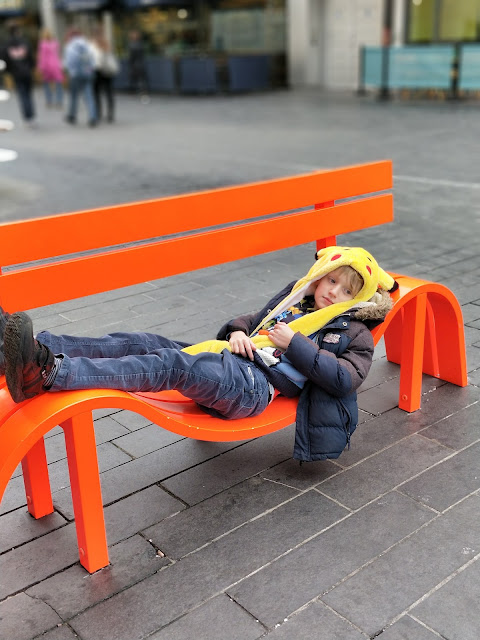I was chatting with my youngest son walking to school the other day and he was listing people he knew with autism, like him. I added a few names to the list from our family and then he told me he felt sorry for me.
Concerned, I queried what he meant? I hoped with all my heart that he didn't feel sorry for me because HE has autism.
Nope - he felt sorry for me because even with a high incidence in the family, I had not been "lucky enough" to be born with autism.
I was blown away. I asked the obvious question.
"Do you feel you are lucky to have autism?"
"Oh yes!" he replied enthusiastically. "I have all sorts of super powers like extra sensitive smell and taste and hearing and sight and I get to see things differently to everyone else."
Cue instant blurry teary eyes from mum.
This conversation proves to me that we were right to keep our lad honestly informed all the way about his condition and to spin it as a difference not a disability. He has added the superpowers bit himself.
When he is anxious or sad or angry about something we might see as irrational, it often really helps him to know that it is almost certainly the autism creating the feeling not him and not us or whoever is frightening or upsetting him.
He is frequently proud of achievements he feels have been enabled by "his" autism. I love that he owns his condition and sees positive elements to it.
Recently we visited the Southbank in London where there is a collection of benches in different shapes. They are perfectly useable benches and my children and a friend we had with us had a really lovely time exploring the collection and trying them all out for size.
It struck me that these quirky benches are like my son with autism. Functioning as they should but in a different way. There was nothing missing from the benches, they were just different. And in many ways they were more interesting.
Did you see that documentary with Chris Packham who said he would not want to be "cured" of his Aspergers even if that was possible? During that programme it was pointed out that many of the world's advances in space exploration, and tech would not have been possible with people who think and see things differently, many of whom almost certainly had/have ASD, diagnosed or not.
I hope that with confidence and pride in his ASD, my boy will go on to do great things for the world.
We just have to survive the bloody EHCP process first!
NOTE: The benches I mention are Jeppe Hein's Modified Social Benches. The article says the exhibition is over but the benches were there last weekend.
Concerned, I queried what he meant? I hoped with all my heart that he didn't feel sorry for me because HE has autism.
Nope - he felt sorry for me because even with a high incidence in the family, I had not been "lucky enough" to be born with autism.
I was blown away. I asked the obvious question.
"Do you feel you are lucky to have autism?"
"Oh yes!" he replied enthusiastically. "I have all sorts of super powers like extra sensitive smell and taste and hearing and sight and I get to see things differently to everyone else."
Cue instant blurry teary eyes from mum.
This conversation proves to me that we were right to keep our lad honestly informed all the way about his condition and to spin it as a difference not a disability. He has added the superpowers bit himself.
When he is anxious or sad or angry about something we might see as irrational, it often really helps him to know that it is almost certainly the autism creating the feeling not him and not us or whoever is frightening or upsetting him.
He is frequently proud of achievements he feels have been enabled by "his" autism. I love that he owns his condition and sees positive elements to it.
Recently we visited the Southbank in London where there is a collection of benches in different shapes. They are perfectly useable benches and my children and a friend we had with us had a really lovely time exploring the collection and trying them all out for size.
It struck me that these quirky benches are like my son with autism. Functioning as they should but in a different way. There was nothing missing from the benches, they were just different. And in many ways they were more interesting.
Did you see that documentary with Chris Packham who said he would not want to be "cured" of his Aspergers even if that was possible? During that programme it was pointed out that many of the world's advances in space exploration, and tech would not have been possible with people who think and see things differently, many of whom almost certainly had/have ASD, diagnosed or not.
I hope that with confidence and pride in his ASD, my boy will go on to do great things for the world.
We just have to survive the bloody EHCP process first!
NOTE: The benches I mention are Jeppe Hein's Modified Social Benches. The article says the exhibition is over but the benches were there last weekend.


